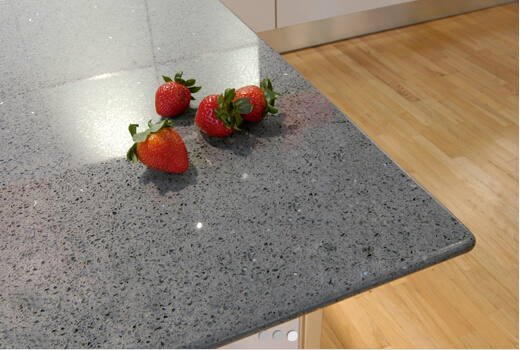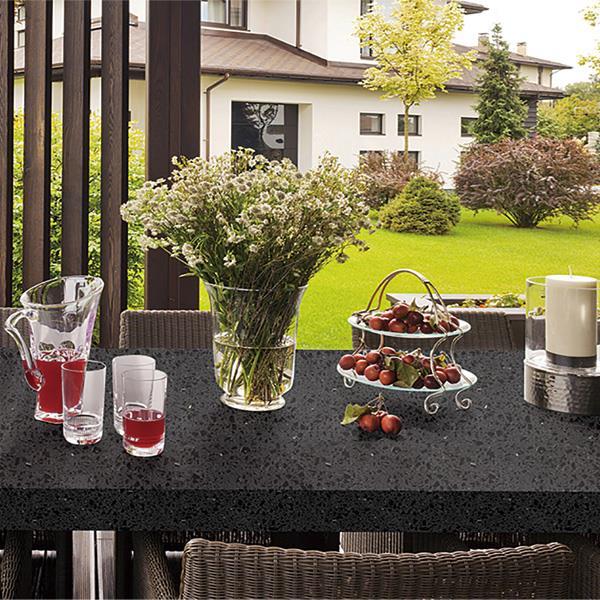
In the realm of landscaping and outdoor design, the choice of materials plays a pivotal role in determining the aesthetic appeal, durability, and functionality of outdoor spaces. While natural stone and concrete have traditionally dominated outdoor applications, quartz stone has emerged as a viable alternative, offering a unique blend of beauty and practicality.
With so many benefits, it's only natural that many people ask if quartz can be used outside.
Quartz stone can be used outdoors, so long as you pick the correct type. While this product has its distinct advantages, others may be preferable for a deck, patio, or outdoor kitchen installation.
Quartz stone may have limitations in certain outdoor applications, particularly in areas prone to extreme heat or heavy impact. Additionally, proper sealing and periodic maintenance may be necessary to ensure optimal performance in high-traffic outdoor areas.
As long as it’s looked after and safely installed, quartz can be used in outdoor kitchens, gazebos, lounges, and dining areas. Countertops made from quartz exude sophistication and bring luxury to outside living spaces.
When installing quartz stone in outdoor applications, it's essential to ensure proper installation techniques and substrate preparation to maximize performance and longevity. Additionally, selecting quartz stone specifically designed for outdoor use can further enhance durability and weather resistance.
While quartz stone may entail a higher initial cost compared to traditional outdoor materials like concrete or natural stone, its long-term durability and minimal maintenance requirements can result in cost savings over time.

Here are some related FAQs about using quartz stone in outdoor applications:
Quartz stone is engineered to withstand temperature fluctuations, making it suitable for outdoor use in various climates. However, it's essential to avoid sudden extreme temperature changes, as with any material.
Yes, quartz stone is an ideal material for use around swimming pools and water features due to its non-porous nature, which makes it resistant to water absorption and staining.
Quartz stone generally offers superior durability compared to many natural stone materials, as it is engineered to be non-porous, scratch-resistant, and resistant to weathering.
While all quartz stone colors can technically be used outdoors, some manufacturers offer specific outdoor collections or lighter colors that may be more suitable for outdoor use, as they tend to absorb less heat.
Yes, quartz stone can be used for outdoor flooring or paving in areas such as patios, walkways, or driveways. However, it's essential to ensure proper installation and choose quartz stone specifically designed for such applications. Quartz stone is highly durable and can withstand moderate to heavy foot traffic. However, in areas with vehicular traffic, it's essential to choose thicker slabs and consider the specific weight-bearing requirements of the application.
You can follow the identical procedures used for cleaning interior quartz countertops. Routine cleaning with mild soap and water is typically sufficient to maintain outdoor quartz stone surfaces. Additionally, periodic inspection for any signs of damage or wear and addressing them promptly can help prolong the lifespan of the material.
Quartz stone presents a compelling option for outdoor applications, offering a unique combination of durability, versatility, and aesthetic appeal. By considering the characteristics, design options, and installation considerations of quartz stone, homeowners and designers can confidently integrate this innovative material into their outdoor design projects, creating captivating outdoor environments that stand the test of time.